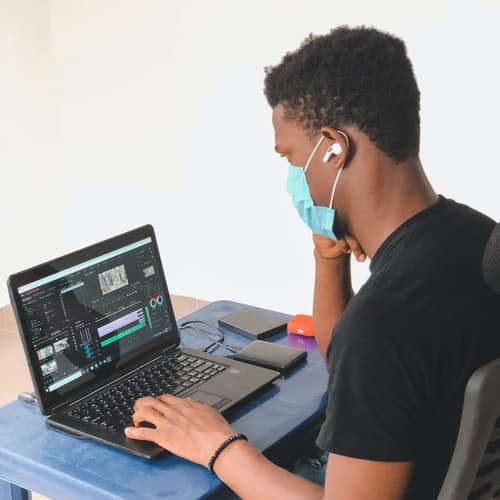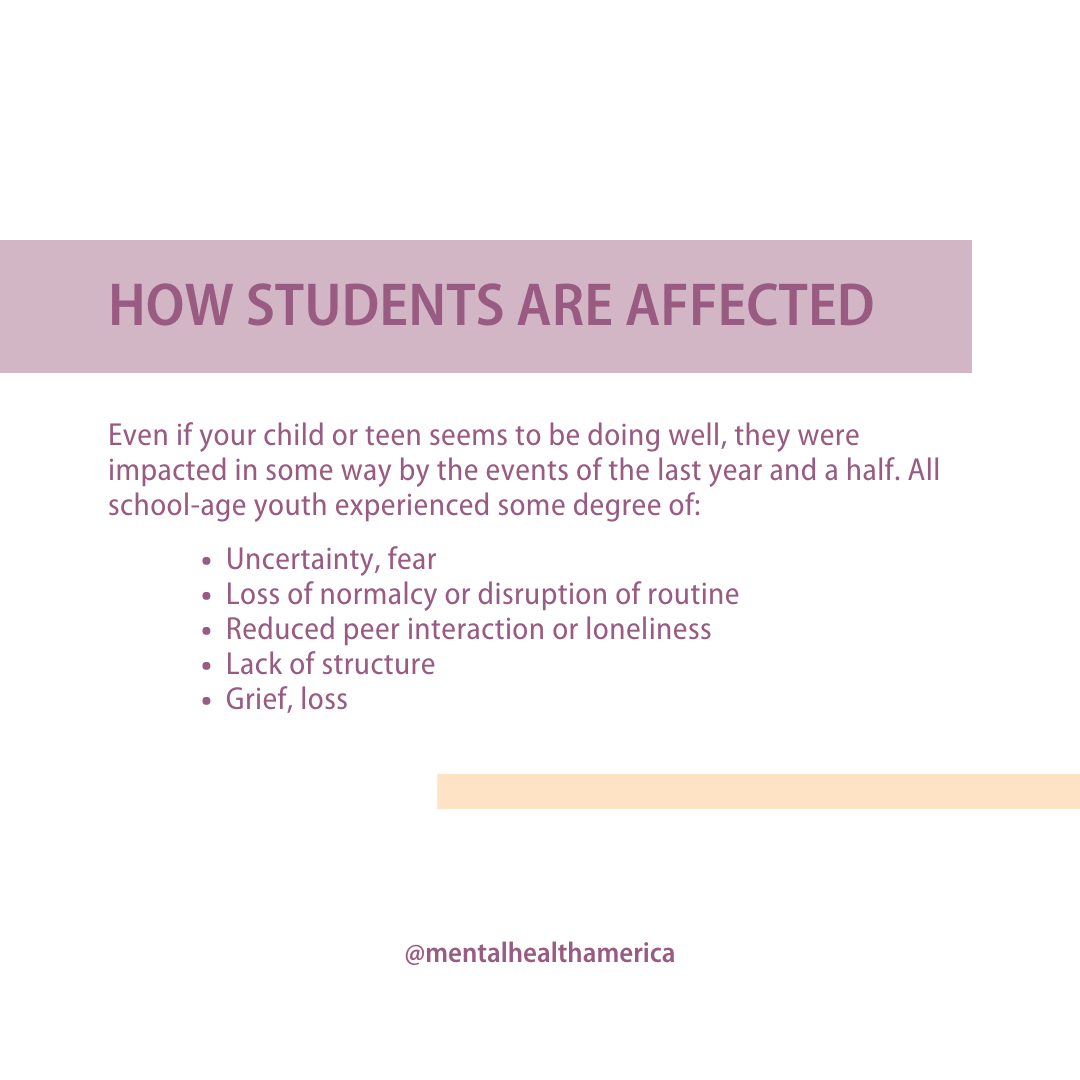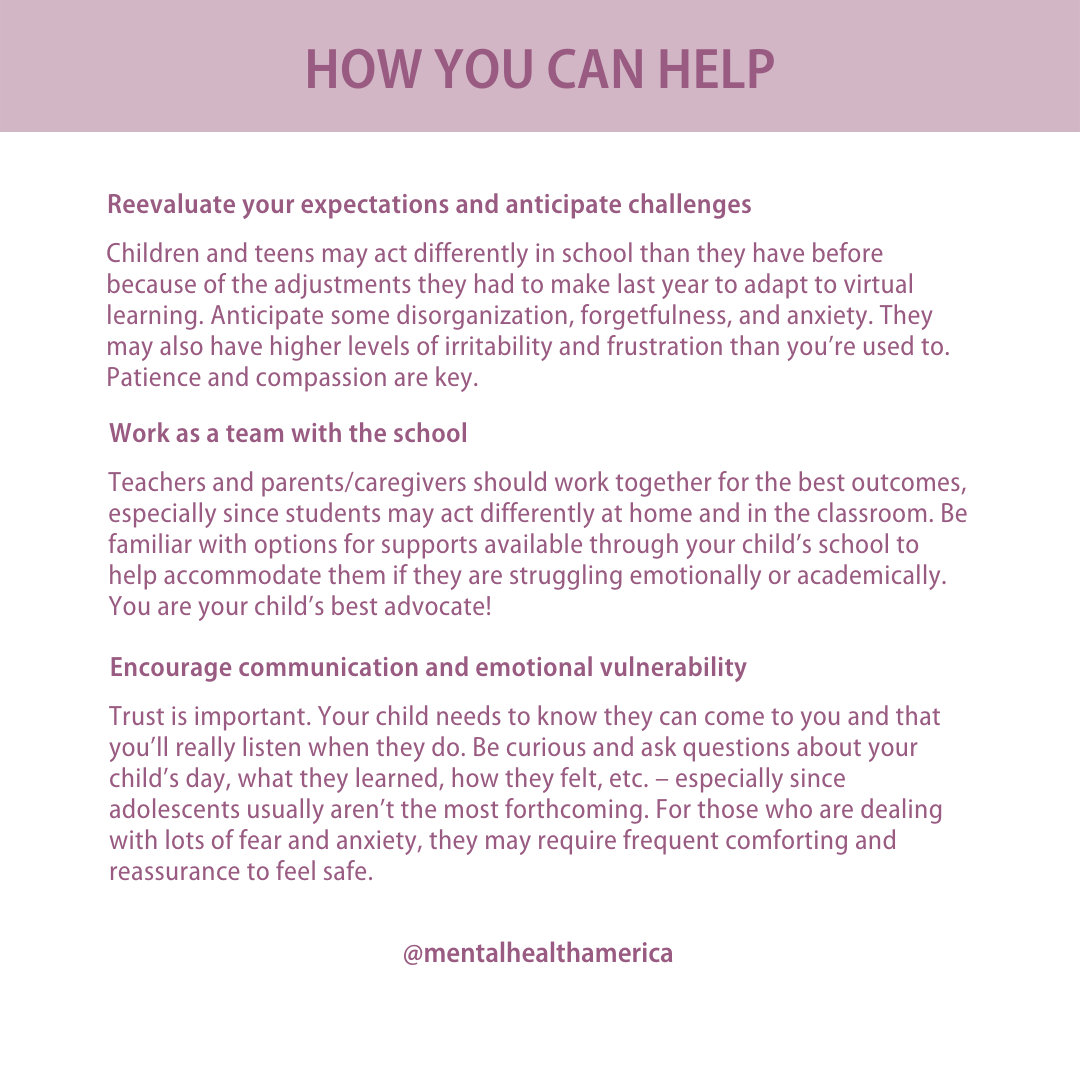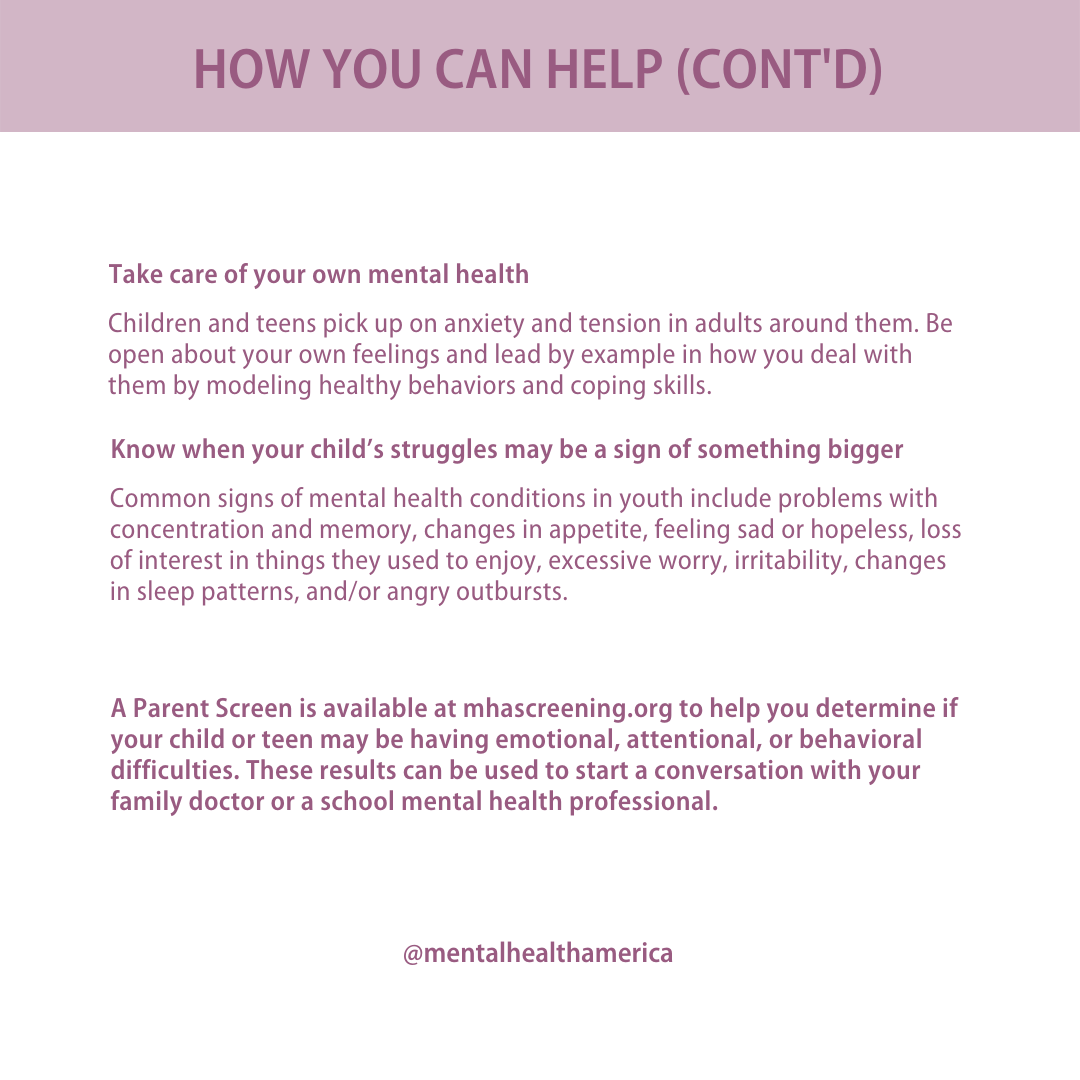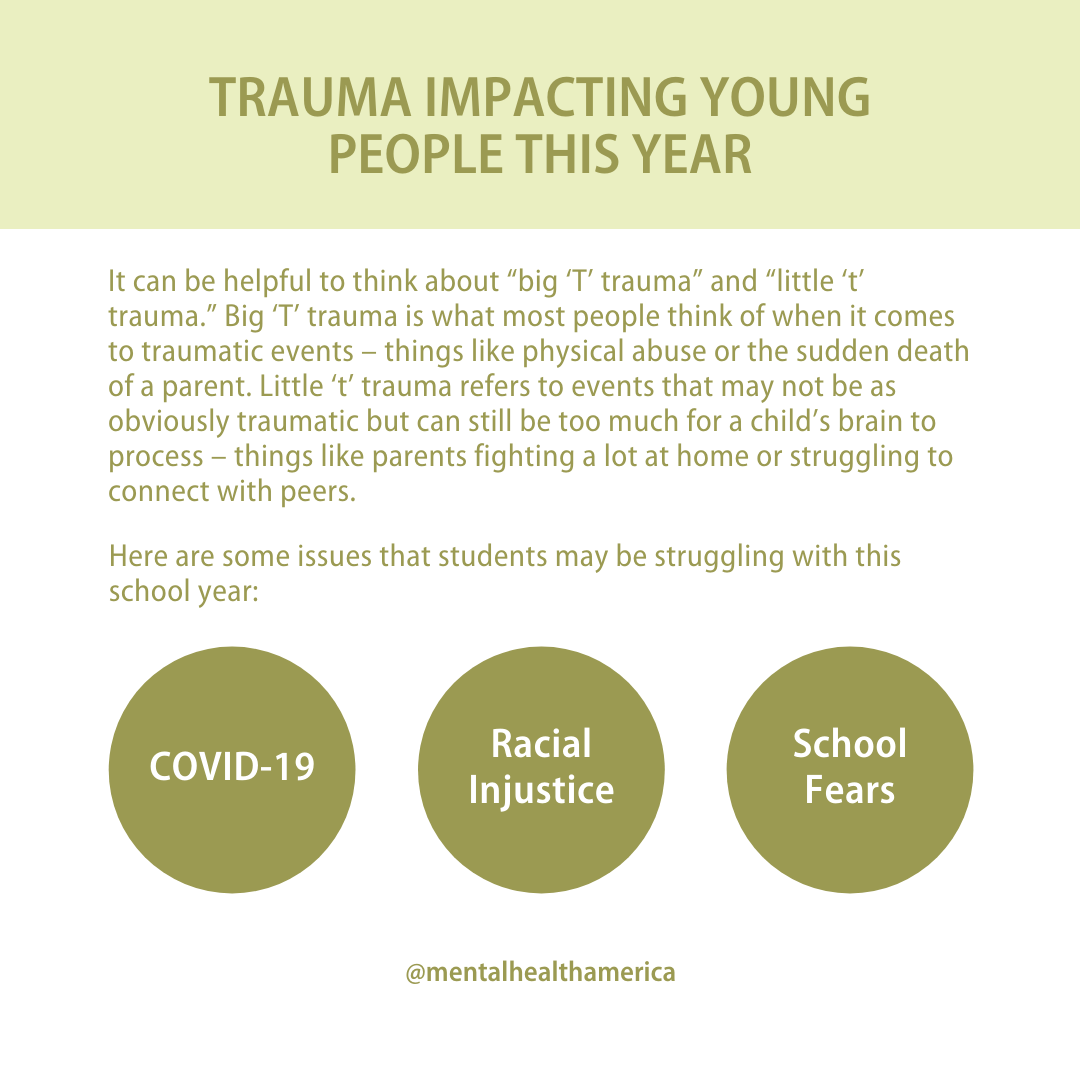Going back to school may come with some anxiety this year. A lot of children and teens haven’t been able to feel safe or stable over the last year because of the trauma caused by the COVID-19 pandemic and the ways it has disrupted “normal” life. Children have different things that could be of concern, such as fear of getting the virus or wearing masks in school.
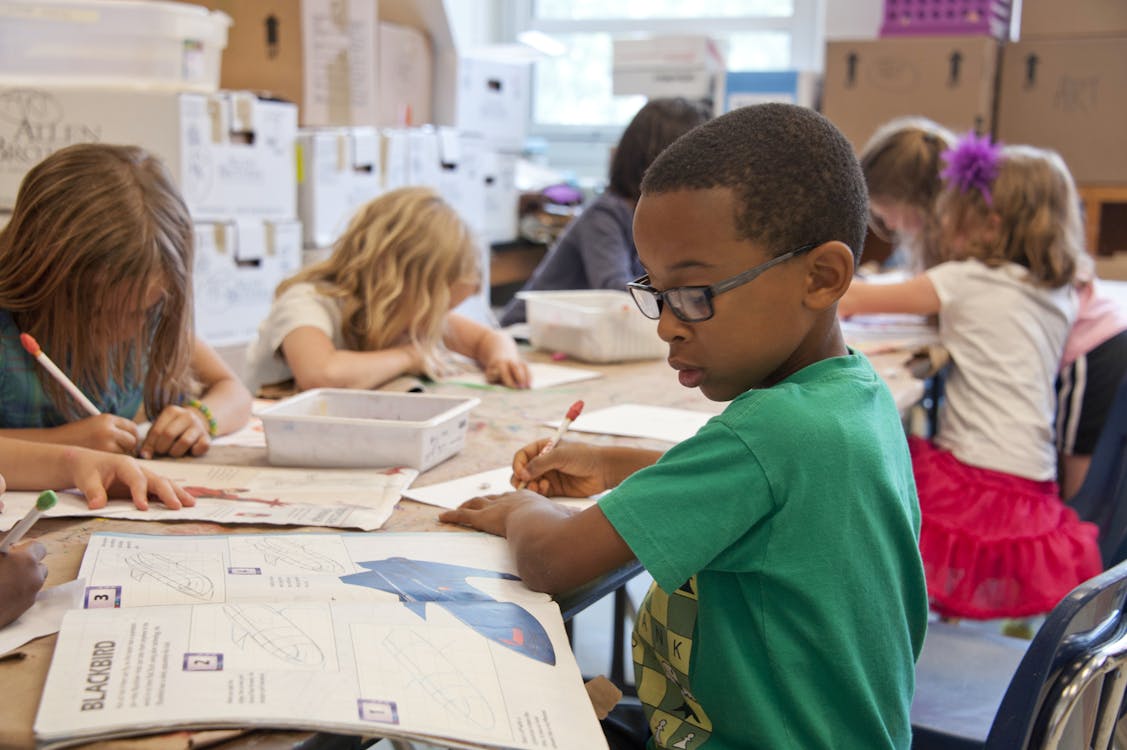
One of the ways to feel safe is to prepare yourself for how to handle situations that scare you if they were to happen, rather than worrying about them. Help your children with this process, encourage them to talk about their feelings and concern so you can help them feel empowered to deal in an appropriate manner.
Dealing with Trauma
People of all ages experience trauma, but it has a particularly long-lasting impact on children as their brains are still rapidly developing. Often, children and teenagers don’t have the necessary coping skills to manage the impact of stressful events.
It can be helpful to think about “big ‘T’ Trauma” and “little ‘t’ trauma.” Big ‘T’ Trauma is what most people think of when it comes to traumatic events – things like physical abuse or the sudden death of a parent. Little ‘t’ trauma refers to events that may not be as obviously traumatic but can still be too much for a child’s brain to process. This includes situations such as struggling to connect with peers.
How Trauma affects children in school
Trauma can undermine many skills that are crucial for learning. Students coping with trauma may experience intrusive thoughts that prevent them from paying attention in class, studying, or focusing in other ways. A child dealing with trauma is likely to have a higher level of back to school anxiety.
Adults should pay attention to changes in children’s normal behaviours, Wu said. A usually talkative child might become withdrawn, start skipping meals or disengage from their favourite activities. Some kids might become clingier than usual.
There’s no one way for children and teens to respond to trauma, but here are some signs to look out for:
- Excessive anger or irritability
- Significantly increased or reduced appetite
- Exhaustion
- Aggression (physical or verbal)
- Regular tardiness/absence from class
- Frequent headaches or stomachaches
- Low self-confidence
- Alienation from peers (self-isolation or inability to relate/make friends)
For more signs, you can visit here
In terms of trauma response behaviours, girls are more likely to turn inward and get quiet or retreat from social settings, while boys are more likely to get outwardly irritable or disrupt the class.
How Parents Can Help
First of all, find the right time to mention that you have noticed your child is struggling or having anxiety. Engage your child in activities they like and get them in a relaxed state before you speak about your observations. Listen more and talk less; do not be judgemental or dismissive when your child shares his or her concerns.
Parents can also share their feelings as well and model how they manage their stress. Let your children know that there is nothing wrong with any emotion in itself; it is what you do with it that matters.
Keep supporting your child by encouraging them and helping them to deal with their emotions. Share on X
When your children are speaking about their back to school anxiety; listen, don’t judge or jump in and correct. Just listen and let them know that it’s okay to share their negative feelings with you about anything. After you have heard them out, then help them with coping mechanisms to deal with their feelings. For example, a child who is nervous about not knowing anyone can be encouraged that they can make new friends over time.
Work with your child’s teachers to help children make strong connections and successfully transition from home to school.
When it comes to your child settling into a new school, it is safe to expect that the first few weeks or months might be a bit like a roller coaster. The reality is that as your child settles into a new school, new environment, tries to make new friends and gets used to a new routine; there is a lot happening simultaneously. As a parent just be there and try not to intervene too much. Expect it to take about one term on average for your child to settle in.
Finally, you also want to give your child time to adjust; whether it is to a new school or a new routine.
Read Also:
